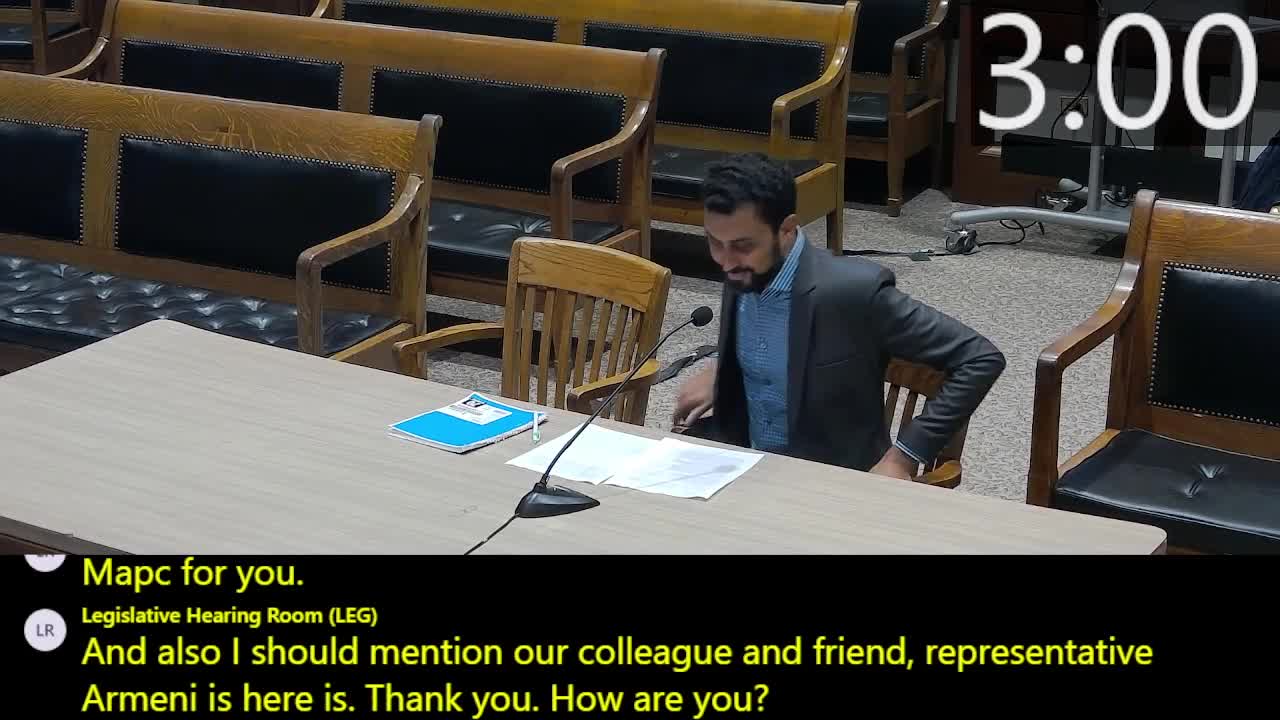Planners back parking assessments and delivery fees; tech industry group warns of harm to customers and small businesses
Get AI-powered insights, summaries, and transcripts
Subscribe
Summary
The Metropolitan Area Planning Council urged the committee to advance H 3756 (local option parking assessments) and S 2356/H 3774 (50¢ third-party delivery fee). Chamber Progress testified in respectful opposition to the delivery fee, citing potential consumer and worker impacts observed in other states.
The Metropolitan Area Planning Council told the Joint Committee on Transportation that two bills could raise new revenue for Massachusetts transportation needs: H 3756, a local option parking assessment, and S 2356/H 3774, a 50¢ fee on third-party food deliveries.
"We recognize that no one bill or policy will solve our transportation funding challenges, but we stand ready to partner with the legislature on a broad range of solutions," Adi Nochor, senior transportation planner at MAPC, said in testimony supporting both measures. MAPC provided estimates that a 10–25% local parking assessment in Boston, Cambridge, Worcester and Springfield could raise between $29 million and $74 million annually, and that a 50¢ fee on third-party food deliveries could generate roughly $69.6 million to $89 million per year statewide based on recent trip volumes.
Hope Ledford, director of civic innovation policy at Chamber Progress, testified in respectful opposition to the proposed delivery fee. Ledford argued a flat 50¢ fee could disproportionately affect low-income residents and small restaurants, and cited Colorado and Minnesota as examples where delivery fees produced unintended consequences, including lower-than-expected revenue in Minnesota and reported income losses for drivers in Colorado. She also said delivery platforms can reduce vehicle miles traveled through route optimization and that a fee could push some customers back to personal vehicle trips.
Committee members heard both written and oral testimony and asked no committee-level questions that led to a recorded vote. Supporters asked the committee to report the bills favorably; opponents urged consideration of equity and economic impacts before moving forward.
